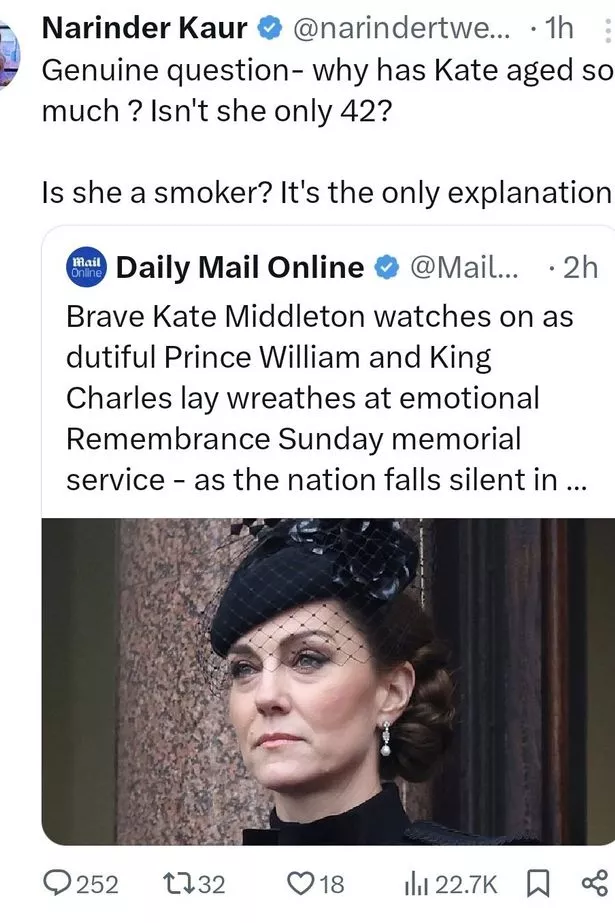In a recent episode of Good Morning Britain, panellist Narendra Kaur ignited a fierce debate online with her comments about the Princess of Wales during the Remembrance Sunday commemorations.
Known for her candid opinions, Kaur took to Twitter to voice her astonishment at Kate Middleton‘s appearance, suggesting that the princess might be a smoker due to what she perceived as signs of aging.
The tweet quickly drew sharp criticism from social media users who felt her remarks were not only inappropriate but also alarmingly insensitive.
Many commentators accused Kaur of harboring jealousy towards the royal figure, while others pointed out that Middleton had recently undergone significant health challenges, including major abdominal surgery and cancer treatment.
These circumstances undoubtedly affected her appearance, making Kaur’s comments even more contentious.
In response to the backlash, Kaur issued an apology, asserting that she never intended to offend anyone.
Despite her attempts to clarify her intentions, the outrage continued to swell across various platforms, with many expressing their discontent over her choice of words.
The incident has sparked discussions about the perils of social media and the ease with which online abuse can proliferate.
Kaur has since faced a torrent of hateful messages, including disturbing death threats, which compelled her to temporarily deactivate her Twitter account.
This reaction underscores the often harsh realities of public life, particularly for those who express controversial opinions.
This isn’t Kaur’s first brush with controversy.
Previously, she has faced backlash for her statements regarding transgender individuals and her association with the far-right group Britain First.
Her history of polarizing remarks raises questions about her role as a public figure and the responsibilities that come with it.
Related Stories

